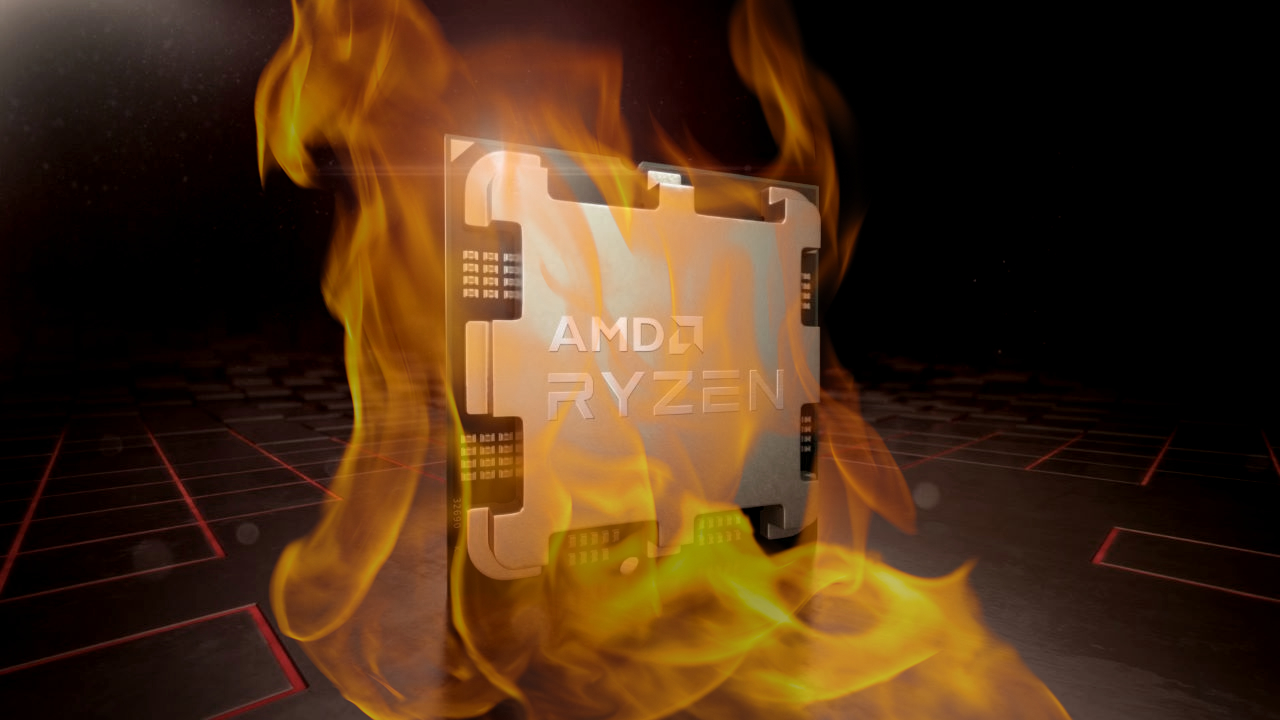AMD Zen 5 CPU delivers 40% performance gains in leaked benchmark
Leaked Zen 5 Cinebench score reveals insane single-threaded performance gains for AMD’s next-generation CPUs
AMD has confirmed that they will be launching their next-generation Zen 5 processors in the second half of this year. As of now, AMD has not revealed many official details about their new CPU architecture. The company has stated that they are building a “new grounds up microarchitecture” with Zen 5, suggesting that many major CPU design changes are being implemented.
Now, a leaked benchmark core for Zen 5 has been revealed. This benchmark score is an alleged single-threaded Cinebench R23 score for Zen 5. By delivering a single-threaded score of around 2,800 point, AMD will deliver a 40% performance gain with their next-generation CPU architecture. Assuming this leaked score is legitimate.
Red Gaming Tech (RGT) reported on this leaked benchmark. While RGT was unable to find its original source, have found that its comes from this post on the Anandtech Forums. Previous rumours have claimed that AMD will deliver averaged IPC gains of around 30% with Zen 5. This new benchmark leak falls in line with these older IPC rumours, as an averaged IPC gain of 30% will see many workloads achieve greater than 30% performance benefits.
Zen 5 CB R23 score?
O_o pic.twitter.com/ubTxY2ja5W
— Szymon Wenerski (@SWenerski) February 17, 2024
No, a 40% performance boost in Cinebench will not mean 40% gains in all workloads
CPUs are insanely complex, and we throw a huge number of different workloads as them. Every workload will react to CPU architectural changes differently. A 40% performance gain in one application does not guarantee a 40% gain in another. That’s the reason why reviewers benchmark CPUs using various tools and applications.
If today’s leak is legitimate, all it confirms is that AMD’s changes with Zen 5 respond well to Cinebench R23’s workloads. It does not guarantee huge performance gains in other applications.
AMD has to deliver large IPC gains with Zen 5
With Zen 5, AMD are reportedly maintaining the same core counts as their existing Zen 4 processors. That’s means that AMD will be releasing a 16 core Zen 5 Ryzen flagship on their AM5 platform. To achieve significant performance gains with their new architecture, AMD will not be relying on CPU higher core counts. AMD needs to deliver more per-core CPU performance with Zen 5. This can only be achieved with increased CPU clock speeds or IPC gains. With Zen 5, AMD have reportedly achieve no clock speed gains with their new architecture. That leaves IPC gains as Zen 5’s only performance-boosting aspect.
Zen 5’s rumoured design changes
When AMD first discussed Zen 5, they confirmed that the architecture was a “new grounds-up microarchitecture”. AMD aims to deliver “enhanced performance and efficiency”. The company has also stated that Zen 5 will offer users a “repipelined front-end and wide-issue”, and “integrated AI and ML optimisations”.
Aside from these confirmed changes, AMD’s Zen 5 CPUs reportedly feature an enlarged L1 cache. With a refresh IO die, Zen 5 should support faster DDR5 memory modules. Additionally, Zen 5 will reportedly feature an L3 “ladder cache”, which replaces the ring-bus style cache of older Zen CPUs. Simply put, this new design is intended to reduce core-to-core latencies within a single CCD and reduce L3 cache latencies. All of these memory and cache changes should result in notable performance gain in all memory or cache sensitive workloads.
Zen 5 will also reportedly feature wider decoders and wider execution units. Improved logic units have also been reported. With large and small changes across seemingly all areas of Zen 5, it is easy to see why large performance gains are possible. It is also easy to see how practically all workloads can benefit from Zen 5’s design changes.
While AMD’s leaked Zen 5 IPC gains are huge, this is certainly the kind of upgrade I want to see from AMD. Like all PC enthusiasts I want to see hardware get faster and faster, but like all leaks or rumours, I’d take this information with a large helping of salt. If these rumours are true, 2024 is going to be a great year for AMD.
You can join the discussion on AMD’s Zen 5 CPU architecture on the OC3D Forums.




